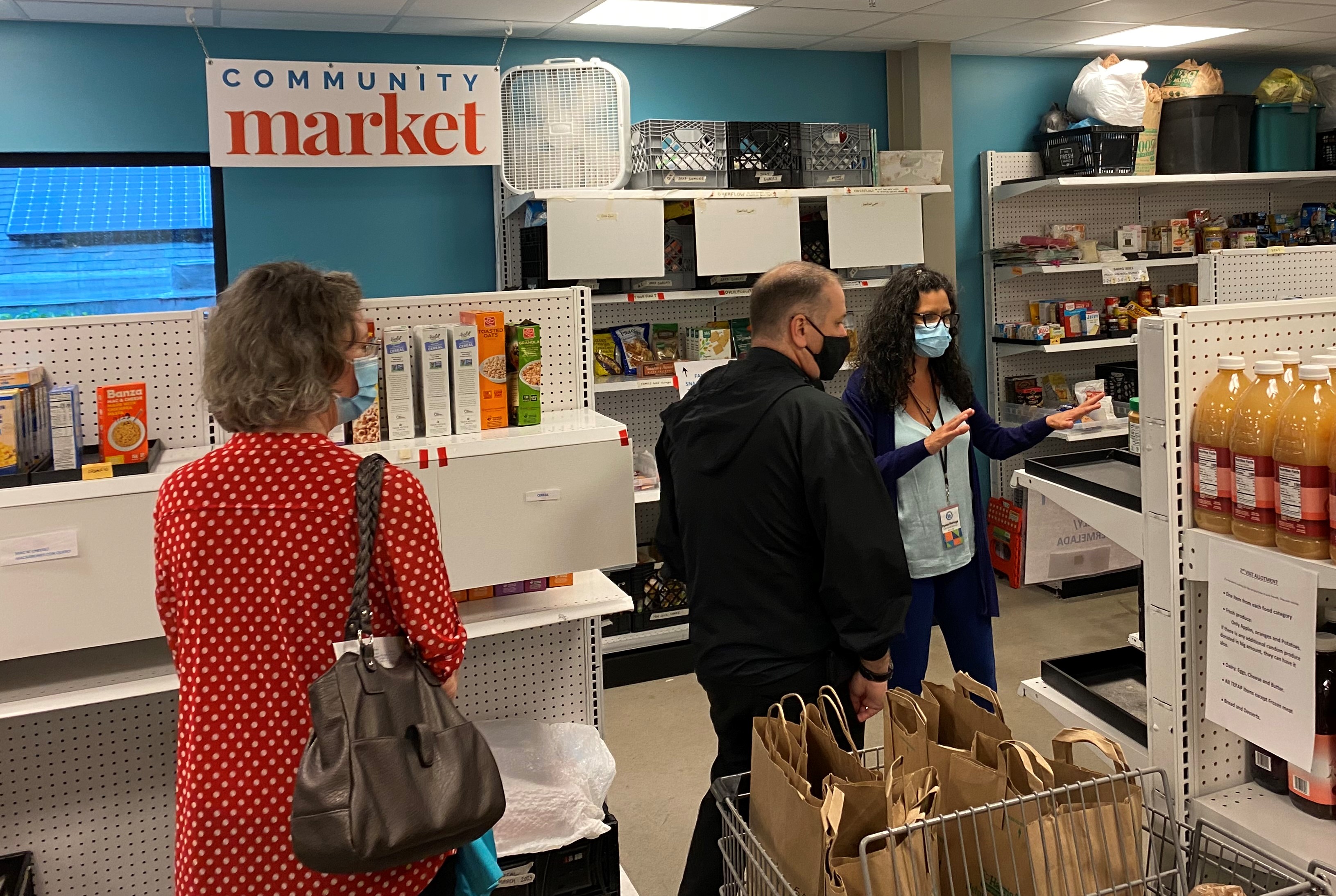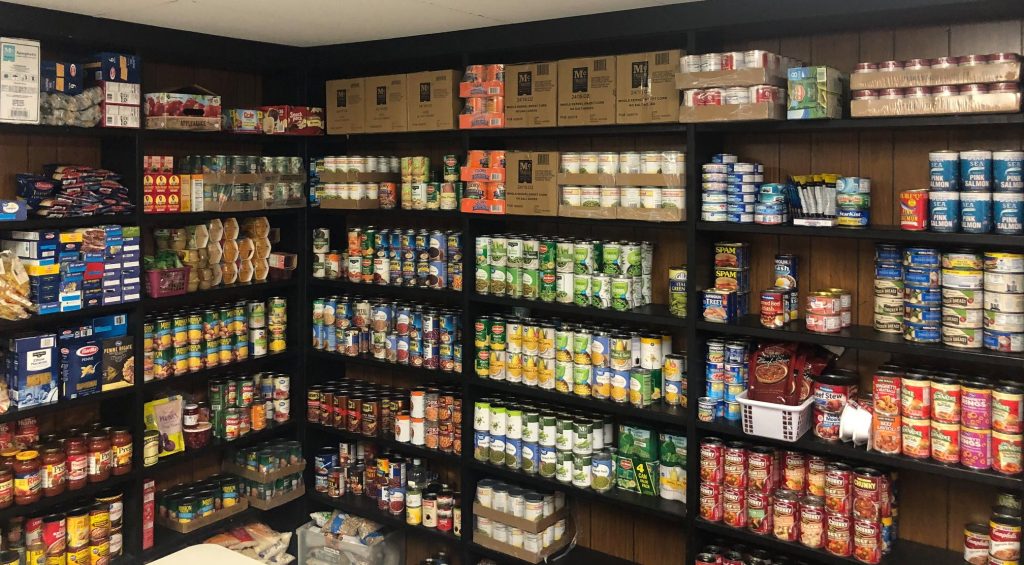Food Pantry Lockhart: Attending To Cravings One Dish at a Time
Food Pantry Lockhart: Attending To Cravings One Dish at a Time
Blog Article
Why Sustaining Your Regional Food Kitchen Is Important for Assisting Those in Demand
The value of sustaining regional food cupboards can not be overemphasized, especially in the context of food instability, which affects a disconcerting number of individuals and family members within our neighborhoods. As we explore the diverse role of food pantries, it comes to be obvious that their influence expands far beyond merely distributing food.
Recognizing Food Instability
Food instability impacts roughly 10.5% of houses in the USA, highlighting a significant public health concern that transcends plain cravings. It describes the lack of constant access to adequate food for an energetic, healthy life. This problem can result in a series of damaging results, consisting of inadequate wellness, raised health care expenses, and lessened academic performance amongst youngsters.
The root causes of food insecurity are diverse, usually originating from economic elements such as unemployment, poverty, and underemployment. Geographical area can likewise play a crucial function, with food deserts-- areas with limited access to cost effective and nutritious food-- exacerbating the concern - Food Pantry Lockhart. In addition, systemic elements, including social and racial inequities, add to the disproportionate effect of food instability on marginalized communities
Resolving food insecurity is not just regarding raising food supply; it requires a detailed strategy that incorporates economic security, education and learning, and neighborhood assistance. Food instability not only impacts individual wellness yet likewise has broader implications for societal health and wellness and productivity. Recognizing its intricacy is necessary for creating efficient interventions and promoting long-term options that make sure all individuals have trustworthy accessibility to nutritious food.
The Duty of Food Pantries
Neighborhood food pantries work as important lifelines for people and families encountering food instability. They offer vital food products to those who might struggle to pay for ample nutrition because of economic challenge, joblessness, or unpredicted circumstances. By distributing food at no charge, these organizations aid minimize appetite and stop the negative health and wellness impacts connected with insufficient diets.
Food pantries typically companion with regional farms, grocery store shops, and community companies to resource a selection of nourishing food items, including fresh produce, milk, and healthy proteins. This partnership makes sure that pantry customers receive not only nourishment yet also much healthier choices that contribute to overall well-being.
Furthermore, food cupboards act as area centers, cultivating links among locals and providing a feeling of self-respect to those in need. Numerous pantries provide added sources, such as nutrition education and learning and referrals to social services, aiding clients browse their challenges better.
In essence, food pantries play a multifaceted duty in combating food insecurity. They not only address instant hunger but likewise encourage households and individuals to improve their situations, therefore promoting community durability and cohesion.

Advantages of Sustaining Food Pantries

Supporting food pantries not only nurtures those in need but also reinforces the fabric of the neighborhood. By offering vital food sources, food pantries minimize cravings and minimize food insecurity, which is essential for the health and wellness of people and households. Access to nourishing food adds to enhanced physical health and wellness, far better academic outcomes for youngsters, and Check This Out boosted psychological wellness, consequently cultivating a more productive and involved area.
Additionally, supporting food pantries advertises social communication. These organizations act as centers for neighborhood involvement, combining volunteers, contributors, and receivers in a shared mission to deal with hunger. This collaboration can damage down obstacles, foster understanding, and construct connections amongst varied area members.
Additionally, contributions to food pantries, whether in the kind of food, funds, or time, boost the neighborhood economy. Lots of food pantries focus on sourcing from regional producers, thus supporting local agriculture and companies. This develops a cycle of support that profits not just those in requirement yet the neighborhood as a whole.
How to Obtain Included
Engagement with food pantries can take several types, permitting individuals and groups to make a meaningful impact in their areas. One of the most direct methods to get entailed is by donating food things. Non-perishable items such as canned items, pasta, and rice are always popular. Monetary donations are additionally very useful, as they make it possible for food cupboards to purchase fresh fruit and vegetables and important site crucial supplies.
Volunteering your time is an additional impactful method to sustain regional food pantries (Food Pantry Lockhart). In enhancement, think about organizing food drives within your workplace, school, or community team to elevate understanding and collect resources.
Partnerships with regional organizations can even more improve support for food pantries. By taking these people, teams and steps can significantly bolster the initiatives of local food pantries and aid those in demand.
Neighborhood Influence and Link
Identifying the extensive influence of food kitchens on community well-being is necessary for promoting a spirit of link and cooperation. Food cupboards serve not only as essential sources for those encountering food instability but additionally as hubs for community involvement. They unite varied teams-- volunteers, customers, and contributors-- developing an atmosphere where individuals can link and support one another.
The impact of food cupboards prolongs beyond mere stipulation of food; they act as a catalyst for social cohesion. By joining cupboard initiatives, area participants can create partnerships that go beyond socioeconomic barriers. This network of support helps to take apart the preconception often connected with food assistance, fostering an atmosphere of approval and understanding.
As individuals join in their initiatives to sustain local food kitchens, they cultivate a feeling of common objective and obligation, enhancing the concept that every person has a function to play in making sure that no one goes starving. Ultimately, supporting food cupboards strengthens the fabric of the community as a whole.
Conclusion
Sustaining neighborhood food cupboards is necessary in combating food instability and improving the health of susceptible populaces. Involvement with food kitchens fosters neighborhood links, advertising social communication and equity.

Report this page